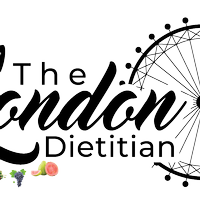Nutrition is a relatively new science and not as black and white as many people would have you thinking. There is certainly no diet that we know of as yet that can help completely prevent or cure neurological disorders such as dementia, multiple sclerosis and motor neurone disease, but we are having an ever-increasing amount of evidence to suggest that certain dietary patterns can help improve our brain function and decrease the risk of developing some of these neurological disorders.
Generally speaking, what is good for our heart health is also good for our brain health. The main 2 dietary patterns that have been looked at to support our heart and brain function are the Mediterranean diet and the MIND diet. They both overlap with their principles and so listed below are the main principles:
Carbohydrates are still on the menu!
For both diet styles, there is an emphasis on opting for wholegrain pastas/bread/rice etc. Now you may be wondering what is so special about wholegrains?
Put simply, when you are eating a whole grain, it has 3 layers to it- you have an outer layer that is packed with fibre, an inner layer that is full of nutrients and a central part which is essentially starch. When we refine our grains, the outer and inner layers are removed, thus leaving us with the starchy centre, which gives the cereals their ‘white’ look. So essentially when we opt for whiter cereals, we can be losing up to 75% of the nutrients that are found in wholegrains!
Stock up on seeds and nuts!
Nuts and seeds are so versatile and can be added to many different foods such as breakfast cereals/porridge, salad and even into your smoothies. Aim for ~5 servings per week with you serving being a handful.
Be extra for the extra virgin olive oil!
Extra virgin olive oil is the least refined type of olive oil and so it is abundant in antioxidants and anti-inflammatory compounds which help exert a beneficial effect to the brain. In addition, it is also high in heart friendly fats. In contrast to what the media has led us to believe regarding its smoking points, recent studies have shown that this oil is perfectly safe for cooking.
Fatty fish is your friend!
Omega 3 fats (EPA and DHA- most extensively studied that have been shown to have health benefits) are particularly important for brain and neurological health- these are fats mostly found in oily fish such as mackerel, fresh tina, canned and fresh salmon, sardines and trout. Aim to have 2, 140g portions per week.
Have a bean fest!
Beans are not just delicious and versatile, they are packed with a loads of fibre, vitamins, protein and chemical compounds called phytochemicals which are believed to exert health benefits that protect us from disease. Aim to have 3 or more servings per week- a serving being 3 heaped tablespoons.
Did someone say chicken?
It is advised to limit the amount of red and processed meats in your diet and opt for poultry.
B is for Berries!
Berries such as blueberries, raspberries, blackberries and strawberries are packed with phytochemicals which have powerful antioxidant and anti-inflammatory actions. Aim to have 2 or more cups per week.
Eat the rainbow!
Although berries have been shown specifically to exert brain friendly benefits, fruits in general are a very important component to our diet for general health and wellbeing. It is advised to have at least 2 pieces of fruit daily and try and have a variety of different types and colours throughout the week.
Did someone say green?
It can be argued that green, leafy vegetables aren’t the most popular vegetables that we typically tend to consume. However, studies have shown that these vegetables in particular are very dense in brain-boosting nutrients. So, try and have at least 1 cup of these per day, in addition to any other vegetables you have throughout the day.
Hydrate, hydrate, hydrate!
Last but not least is water. Although not a food, it is extremely important for us to be adequately hydrated. Our brain is ~75% water and so being even slightly dehydrated can negatively impact our brain health. Water is vital for optimal brain function and for the production of hormone and neurotransmitters. Not being sufficiently hydrated throughout the day can lead to feeling tired, getting a headache, in addition to affecting memory and cognitive performance.
And there you have it- the dietary pattern that has been shown to be beneficial for our brains. In addition to the above, it is important to try and limit fried and confectionary foods yet bear in mind that the occasional treat is fine- there is no need to demonise any foods!

